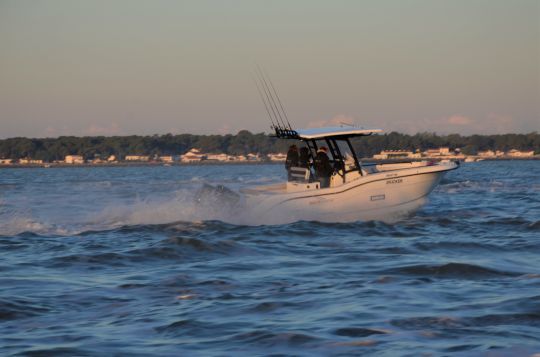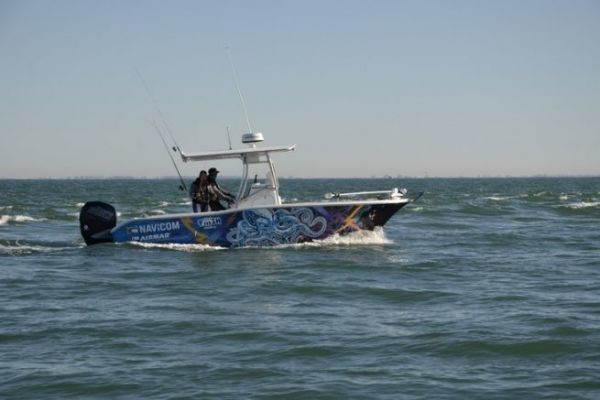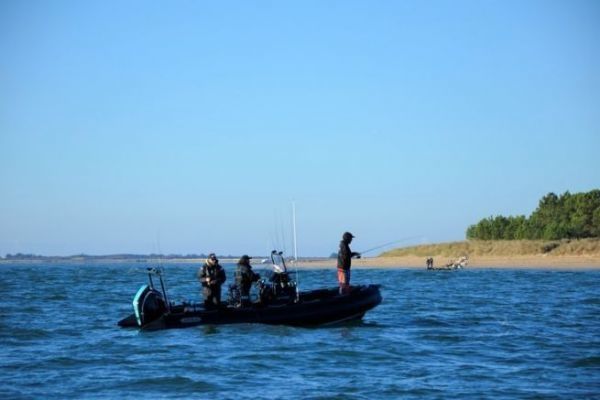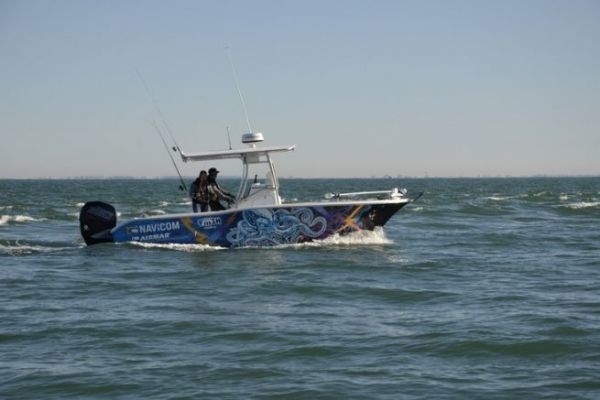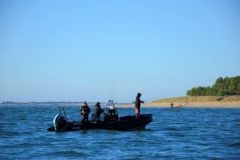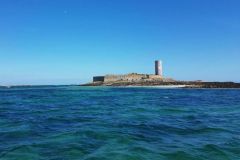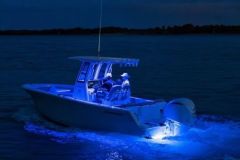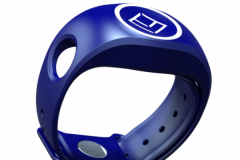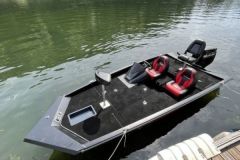Security
The first consideration when choosing a boat for sea fishing is undoubtedly its on-board safety. A high freeboard prevents you from falling overboard too easily, which is what most hard-hulled boats have. The solidity of the hull also avoids a large number of problems, with little chance of piercing it when it comes into contact with a rock, or damaging it when maneuvering in a harbor. Of course, the hull is also safe for hooks, which will not be able to sink into it.
On the other hand, a hard hull less than 8 meters long is very heavy for its length, which greatly limits the passage of waves in rough seas. These boats generally offer a feeling of security thanks to their solidity.
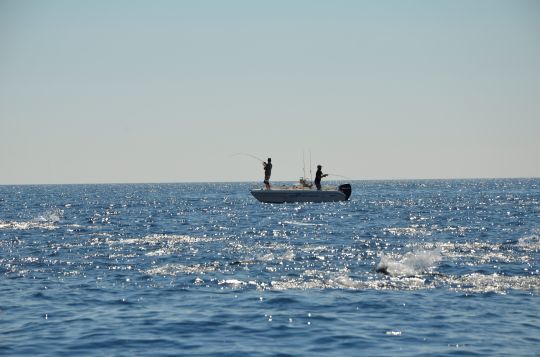
Comfort and fishing
When fishing from a hard hull, you quickly realize some of its peculiarities. When sailing, repeated bumps from waves can be very unpleasant. They can also damage fishing equipment, which is not designed to bang around in a boat. These shocks, along with engine vibrations, are also very noisy and echo through the hull, making discreet approaches difficult for flush or shallow-water fishing.
Hard-hulled boats also tend to drift very quickly on the water, which is impractical when you want to fish vertically. Although it depends on the model, these boats have a strong tendency to heel, which can be very unpleasant when fishing. In spite of this, the space on board these boats makes it easy to move around and stow your gear.
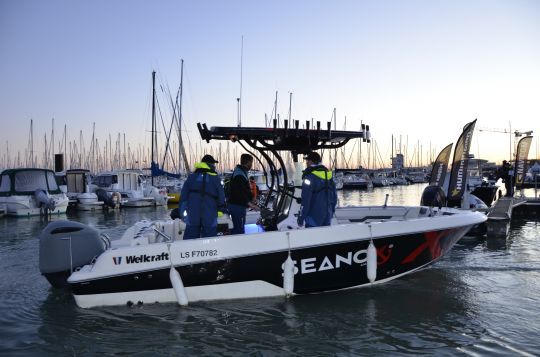
Motorization
Without a doubt, the biggest weakness of a hard-hull boat is its motorization and all that it implies. Pushing a heavy, voluminous hull requires a lot of power, and therefore one or two large engines. Large internal combustion engines have large displacements and undeniably consume more fuel than smaller engines. Consumption is even higher when the hull has to cope with rough seas, greatly slowing its progress. Motorizing and powering such a boat is therefore much more expensive, and can sometimes disappoint anglers who wish to go out often or for long periods at sea.
For the more specialized among you who wish to control their daggerboards, the use of an electric motor on a hard-hulled boat is extremely complicated. The height of the bow and the power required of the motor make it a very expensive option. So you'll need to control the drift with the motor running, despite the noise generated, or use a floating anchor which will slow you down slightly.
